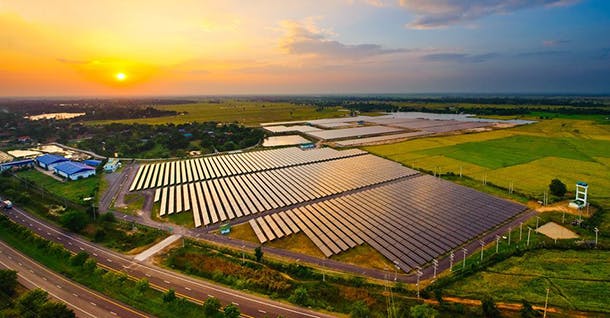
The damage done by Hurricane Matthew reminded us all of the devastating power of extreme weather, from the destruction of entire communities in Haiti to deadly flooding in North Carolina. Acting on climate change to reduce the potential for more such disasters is ever more urgent.
Fortunately, the world is responding. Just this month, there has been much good news:
- Much earlier than expected, the Paris Agreement on climate change will enter into force. This landmark pact crossed the necessary threshold of country approvals, with a big boost from the U.S., China, and India, and will take full effect on November 4, just as the world convenes for the next round of United Nations climate talks in Marrakech, Morocco.
- At a meeting in Montreal convened by the UN’s aviation arm, 191 countries for the first time agreed to limit greenhouse gas emissions from international flights. Why does that matter? Aviation produces more emissions than entire countries like Canada and South Korea; without this decision, those emissions were projected to triple by 2050.
- On October 15, UN negotiations in Kigali, Rwanda, concluded successfully with a new deal agreed by 170 countries to phase out the use of hydrofluorocarbons (HFCs). Used in air conditioners and refrigeration systems around the world, HFCs are pound for pound far more powerful greenhouse gases than carbon dioxide.
Again and again, around the world, the UN is bringing countries together to tackle the toughest global challenges. Now it is getting a new leader, António Guterres, the former Prime Minister of Portugal and for 10 years the UN’s High Commissioner for Refugees. On January 1, he will succeed Ban Ki-moon, who as Secretary-General for the past decade has called for action on climate change with persistence and passion. Will Guterres do the same?
One clue came last December, when he gave an important speech in Geneva on the root causes of human displacement. “Our world today is at a crossroads,” Guterres said. “From a humanitarian perspective, this juncture is defined by two ‘mega-problems’: a seemingly uncontrollable multiplication of violent conflicts in an environment of global insecurity, and the pervasive and growing effects of natural hazards and climate change that are already shaping our present and will shape our future even more.”
Conflict and climate change, he said, are “interlinked, overlapping, and mutually reinforcing factors that accumulate and contribute to eventually driving people from their homes.”
Guterres continued: “Leadership and political will are essential to end the violent conflicts that have displaced tens of millions of people and to finally tame the progression of global warming. But meanwhile, development cooperation also has a key role to play in efforts to address the root causes of displacement. Building on the groundwork laid by the 2030 Agenda for Sustainable Development and its commitment to not leaving anyone behind, I see four priorities for development cooperation in the future: adaptation to climate change, a better link with human mobility, durable solutions, and conflict prevention.”
That linkage between sustainable development and climate change was echoed last summer in an interview with Time magazine, when Guterres said, “the Secretary-General can play a very active role in making sure the Agenda 2030 is effectively implemented, as well as the agreements that were made in Paris on climate change. I see the Secretary-General role and the UN role as instrumental in supporting member states to make sure that as these recent landmark achievements are implemented, they become a true success.”
Those are encouraging words. They give hope that the new Secretary-General will continue his predecessor’s leadership on climate change. He will be supported by three superb new leaders installed this year: The skilled Mexican diplomat Patricia Espinosa has replaced Christiana Figueres at the helm of the UN Framework Convention on Climate Change; Norway’s Erik Solheim is the new head of the UN Environment Program; and Rachel Kyte, formerly the World Bank’s climate envoy, is the Special Representative of the Secretary-General for Sustainable Energy for All.
This is a UN team that can move the world forward toward achievement of its sustainable development and climate goals and urge the higher ambition and faster action that the world truly needs – for, as much as has been accomplished in the last 12 months, Hurricane Matthew reminds us we must do more.
[Photo: UNFCCC]



 View All Blog Posts
View All Blog Posts